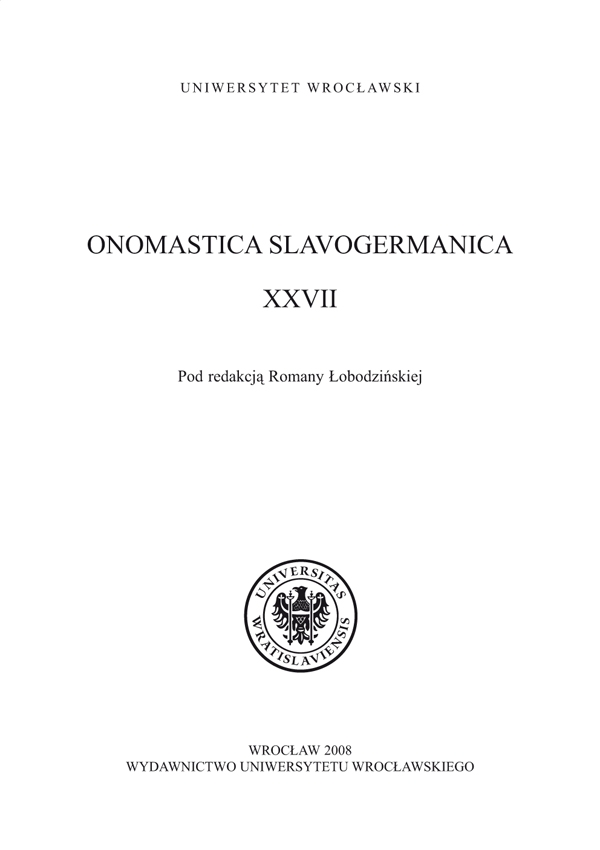Adaptacje językowe w śląskiej antroponimii na przykładzie dziewiętnastowiecznych nazwisk opolan
Abstrakt
Language adaptations in Silesian anthroponymy exemplified by 19th-century surnames of inhabitants of Opole
The aim of this paper is to analyse 19th-century surnames of inhabitants of Opole, where adaptation processes related to languages neighbouring or co-existing in this area accumulated throughout many centuries. These influences result from specific language symbiosis of a cultural and language borderland, from people’s migration, from continuous flow of settlers, office workers, soldiers and workers of foreign origin, and also from both trading and personal liaisons. Surnames in Opole show earlier evidence of influence of Latin e.g. Materna, Perlitius, Petrus and Czech e.g. Homolla, Krotochwil, Prochhaska. However, first of all the evidence of influence of German can be observed in relation to Polish surnames e.g. Domke, Fürla, Kruppitz, Nedschella and influence of Polish in relation to German surnames e.g. Bruma, Cypra, Czwielung, Hofferek. These phenomena can be observed on different language levels – starting from graphics and phonology through inflection and word formation and finally cases of translating the whole surnames. These adaptation processes are difficult to assess as they coincide with Silesian dialectal features and also with fea tures of German dialects from various stages of their development.

